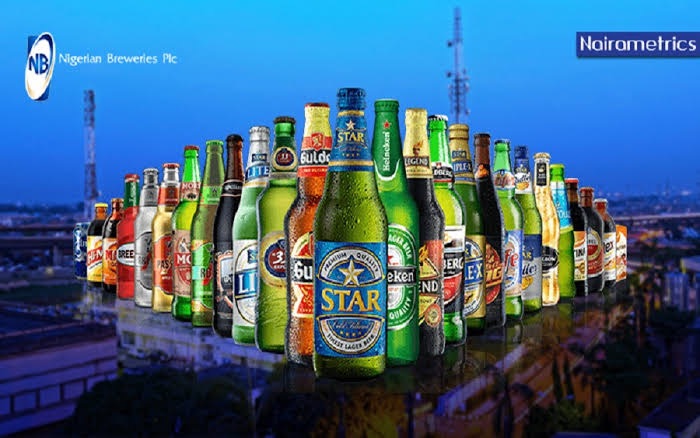The listed brewers in Nigeria posted a combined loss of N169.7 billion in the first three months of 2024, an analysis of data on financial statements shows.
A combination of rising interest rates and further devaluation of the naira dealt a severe blow to the financials of Champion Breweries Plc, Nigerian Breweries Plc, International Breweries Plc, and Guinness Nigeria Plc. In Q1 of last year, three of them reported a total loss of N54.3 billion, while Guinness Nigeria posted a profit of N1.84 billion.
Steep naira devaluation and high interest rates are causing further spikes in manufacturers’ costs of production and amplifying a cost-of-doing business crisis in the country, experts say.

“The overriding concern that has triggered a situation where businesses have negative retained earnings in the breweries sector can be largely traced to the recent naira devaluation which has significantly impaired value for businesses with huge dollar exposures amid the protracted decline in purchasing power in the Nigerian economy,” Ayodeji Ajilore, an investment research analyst with ARM, said.
International Breweries recorded a foreign exchange loss of N162.2 billion in Q1 from an FX gain of N1.22 billion. Nigerian Breweries’s FX loss widened to N72.85 billion from N14.64 billion.
Guinness Nigeria had an FX loss of N37.06 billion from N4.28 billion. Champion Breweries recorded N0.74 billion while no FX loss was recorded in the same period of the previous year.
Nosike Nwajide, team lead of the research arm at Agusto &Co, said the weak naira has accelerated costs associated with foreign debt service obligations which have further strained businesses’ profit margins.
“The shift to a floating exchange rate triggered a steep depreciation of the naira and culminated in major FX losses in the industry,” he said.
The beer industry contributes to the country’s growth via its domestic and international operations and its global supply chain.
In 2019, the global beer industry supported a $2.2 billion GVA contribution to Nigeria’s GDP, accounting for 0.6 percent of national GDP, according to Oxford Economics.
Apart from the weak naira, experts also attributed the losses recorded by beer manufacturers to low consumer spending.
Femi Egbesola, national president of the Association of Small Business Owners of Nigeria said the purchasing power of the consumers has been depleted.
“Inflation has reduced purchasing power and disposable income of the consumer and this is forcing them to prioritise their spending,” Egbesola said.
“At the moment, many alternatives to alcohol are also available in the market and competition is also very stiff,” he noted.
Uchenna Uzo, professor of marketing at Lagos Business School, said household income is failing to keep pace with the country’s accelerating inflation, shrinking wallets, and fueling low demand.
“People are not buying as much as they would before the economic conditions in Nigeria,” Uzo said.
“There has also been a bit more variety in terms of different types of beers other than the traditional premium lager that customers have available to them and there are cheaper variants so people are willing to explore lower quality alcoholic beverages at cheaper prices.
He added that the macroeconomic headwinds are also affecting beer makers as all costs relating have continued to surge.
Olaitan Ibrahim